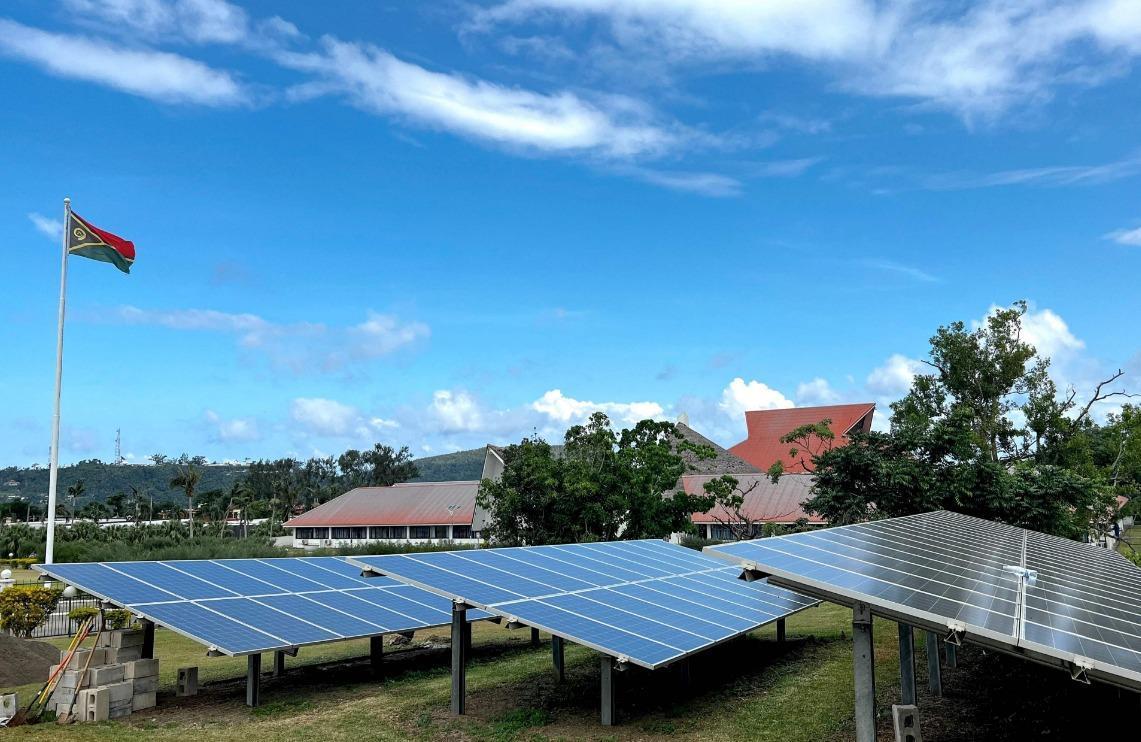Gulf oil states on a Pacific charm offensive
SYDNEY

Gulf oil states are using their vast wealth to build influence across the far-flung South Pacific, experts have told AFP, tearing a page straight out of China's Belt and Road playbook.
Saudi Arabia and the United Arab Emirates, two of the world's biggest crude oil producers, have been ramping up efforts to shed their reputations as global climate laggards.
Both have been lavishing money and attention on small, isolated and often indebted Pacific nations, where rising sea levels are already creeping up on low-lying coastal communities.
Businessman Milroy Cainton, who was recently appointed as Vanuatu's special envoy to the Emirates, said it was clear the Gulf states wanted friends in the Pacific.
"There are some good things they see in the South Pacific," he told AFP. "We are getting big help from them, as well as from China."
Since 2015, the UAE says it has spent at least $50 million on infrastructure projects throughout the Pacific islands, typically focused on renewable energy.
Emirati petrodollars have funded a wind farm in Samoa, water storage facilities in the Marshall Islands, and solar power projects in Kiribati, Tuvalu and Solomon Islands.
One of the most conspicuous examples sits smack in the middle of Vanuatu's leafy capital Port Vila, where a UAE-funded solar farm keeps the lights on inside the country's parliament.
"It's one of the largest-scale renewable energy projects in Vanuatu," said Cainton. "The relationship is progressing big time with clean energy."
Saudi Arabia has sought to establish diplomatic relations with a clutch of its own Pacific partners, including Tuvalu and Fiji in 2015, Tonga in 2020, Vanuatu in 2022, and the Cook Islands in April this year.
It has built a particularly warm relationship with Solomon Islands, pledging $8 million in June to help it prepare for the Pacific Games in the capital Honiara.
A host of Pacific dignitaries traveled to the Saudi capital Riyadh earlier this year, where they discussed issues such as climate financing with counterparts from the Arab League.
Over the past decade Saudi Arabia and the UAE have become increasingly prominent players on the international stage.
They have snapped up high-profile sporting franchises, lured the biggest entertainers to perform in their cities, and become more assertive in their foreign policy.
Both have made headline-grabbing commitments to renewable energy, and the UAE pulled off a major coup when it secured the rights to host the COP28 climate conference in Dubai later this year.
Jean-Loup Samaan from the Middle East Institute at the National University of Singapore said profit was far from the most important consideration when dishing out these investments.
"They want to secure diplomatic partners that align with their interests later on."
Although they have a small collective population and limited economic clout, the Pacific islands can be immensely valuable diplomatic partners.
The Pacific bloc represents 12 of 55 votes in the United Nations' Asia-Pacific region, which also includes Saudi Arabia and the UAE.
















